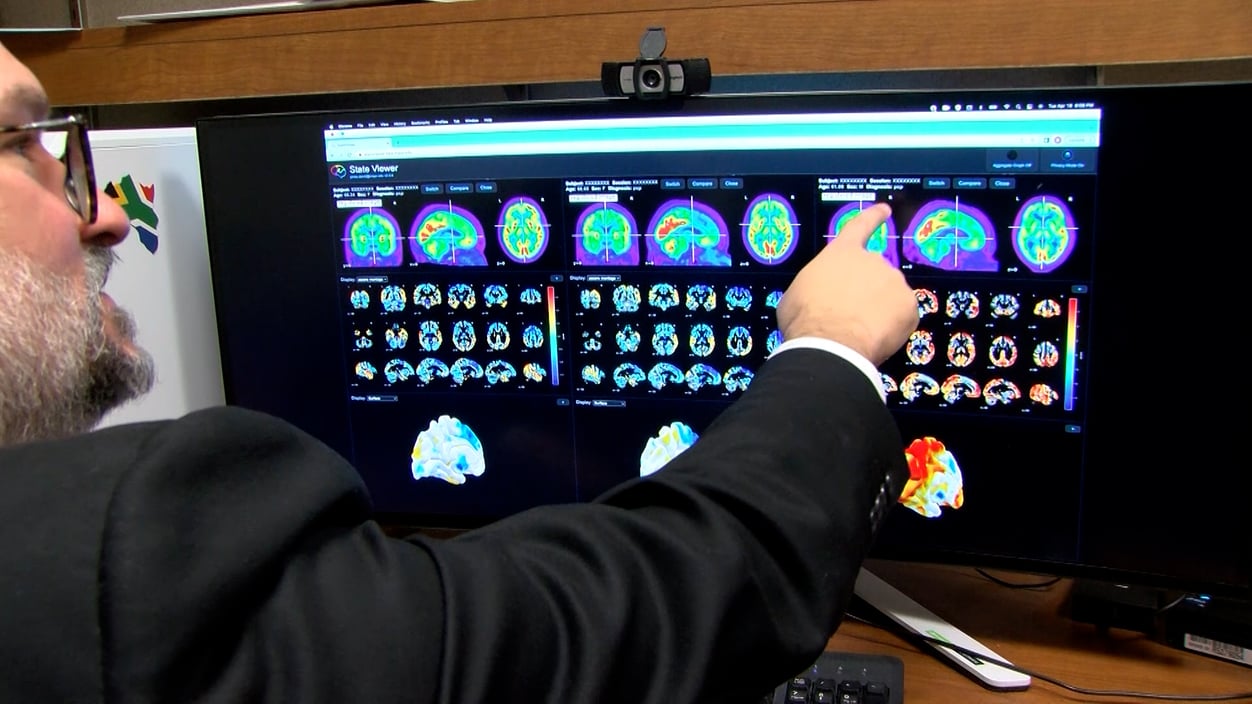artificial intelligence
Dementia diagnosis gets an AI tool at Mayo Clinic

Mayo Clinic
Mayo Clinic has been all in on AI since 2019, as it started investing heavily in the technology and established a 10-year cloud partnership with Google. In its neurology department, that vision folded into the development of a new tool called StateViewer that aims to help neurologists distinguish between nine types of dementia. This year, they made the call to roll it out to all of Mayo's practices — from its big campuses of specialists to its community and rural practices.
"It really does delete my expertise," said neurologist David Jones, who directs Mayo's Neurology AI program and developed the tool. "I've made myself less useful."
The next step, they say, is commercialization. But like all AI developed within the confines of an academic medical center, there are looming questions about how it can perform in different care settings.
Read more about the tool in my latest story.
Privacy
Meta violated CA privacy act over Flo period app data
Period tracking apps like Flo were one of the first consumer health apps to come under scrutiny for their data sharing practices, which are subject to far fewer data protections than traditional health care entities via HIPAA. In 2021, Flo settled with the FTC over allegations that it shared sensitive health information with Meta (or as it was known back then, Facebook) despite promising users privacy.
Similar allegations have been winding through the California court system, too, and on Friday a jury found Meta violated the California Invasion of Privacy Act when it got access to data on Flo's millions of users. (Flo settled the suit's allegations separately, along with co-defendant Google.)
It gets wonky: The class action's claims hinged on how Flo's "custom app events," with names related to period date and cycle length, were transmitted and used to target ads, whether that counted as eavesdropping, and whether users consented to their data use.
"This verdict sets an important precedent — it's the first time a jury has held a tech giant like Meta accountable for exploiting health data," said Andrea Downing, cofounder of the Light Collective patient rights organization. "Until now, most enforcement has focused on the app developers themselves, like Flo or GoodRx. But this case flips the script."
telehealth
Hims-and-hers class actions over GLP-1 tie-ups
Investors are angry with how both Hims and Novo Nordisk have dealt with the fallout from their failed partnership to support online orders for the obesity drug Wegovy. The deal imploded mere weeks after it was announced, when Novo said the telehealth company had been engaging in "illegal mass compounding." Two class action complaints have already been filed against Hims alleging false and misleading statements about the value of a tie-up with Novo's self-pay pharmacy, and failure to disclose its risks to the business. And on Friday, Novo got slapped with its own suit from investors.
The new class action alleges Novo overstated the prescriptions that would result from patients switching over from compounded GLP-1s when Wegovy's shortage came to an end — a strategy Novo marketed through partnerships with telehealth companies including Ro, LifeMD, and Hims. In earnings last week, Novo slashed its guidance for 2025, blaming the continuation of GLP-1 compounding.
In Hims' earnings report last night, the company's quarter-to-quarter revenue fell for the first time, which CFO Yemi Okupe attributed to declining sales of weight loss medications, and its stock fell in turn.
Rulemaking Another (much quieter) federal interoperability move
Last week, all eyes were on the White House's health technology event and the 60+ companies that signed on to various interoperability and patient access pledges. All those commitments are voluntary, but on Thursday the administration laid down some actual interoperability rules, too. Buried in a CMS final rule, the Assistant Secretary for Technology Policy released HTI-4, finalizing a few points from the much-bulkier HTI-2 proposed rule from last July.
The abbreviated updates seem poised to support CMS's goals to improve the prior authorization process for Medicare beneficiaries, updating health IT certification criteria for electronic prior auth, e-prescribing, and real-time prescription benefit lookup. But like all of ASTP/ONC's rules, they take time to kick in. Have thoughts on the impact of these concrete criteria compared to the smorgasbord of pledges from the White House signatories? We'd love to hear from you!
No comments